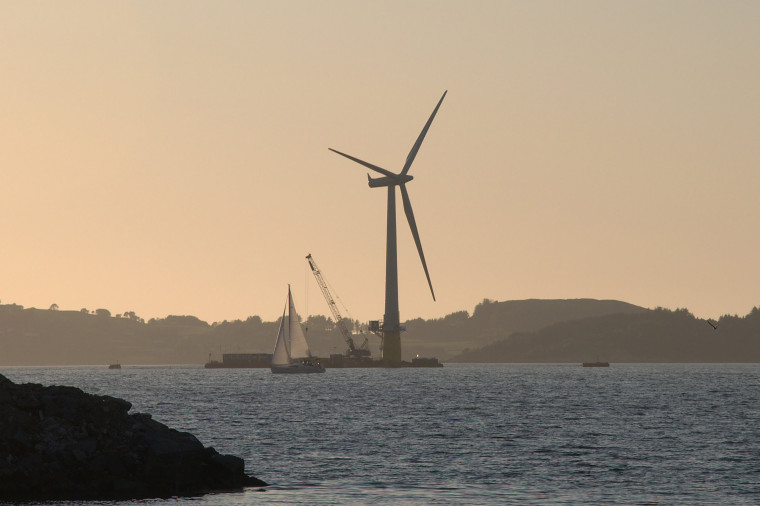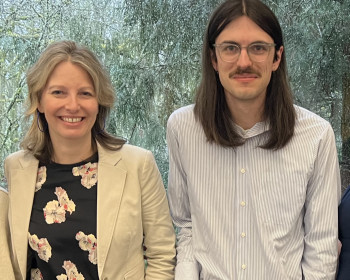February 25, 2022
WATCH: Winds of Change: Offshore Wind, Fish, and the Western Grid
To watch the hour presentation, click here.
Open gallery

<picture class="lw_image"> <source type="image/webp" media="(max-width: 500px)" srcset="/live/image/gid/486/width/500/92492_Hywind.rev.1644009627.webp 1x, /live/image/scale/2x/gid/486/width/500/92492_Hywind.rev.1644009627.webp 2x, /live/image/scale/3x/gid/486/width/500/92492_Hywind.rev.1644009627.webp 3x"/> <source type="image/webp" media="(max-width: 800px)" srcset="/live/image/gid/486/width/800/92492_Hywind.rev.1644009627.webp 1x, /live/image/scale/2x/gid/486/width/800/92492_Hywind.rev.1644009627.webp 2x"/> <source type="image/webp" media="(min-width: 801px)" srcset="/live/image/gid/486/width/1000/92492_Hywind.rev.1644009627.webp 1x, /live/image/scale/2x/gid/486/width/1000/92492_Hywind.rev.1644009627.webp 2x"/> <source type="image/jpeg" media="(max-width: 500px)" srcset="/live/image/gid/486/width/500/92492_Hywind.rev.1644009627.jpg 1x, /live/image/scale/2x/gid/486/width/500/92492_Hywind.rev.1644009627.jpg 2x, /live/image/scale/3x/gid/486/width/500/92492_Hywind.rev.1644009627.jpg 3x"/> <source type="image/jpeg" media="(max-width: 800px)" srcset="/live/image/gid/486/width/800/92492_Hywind.rev.1644009627.jpg 1x, /live/image/scale/2x/gid/486/width/800/92492_Hywind.rev.1644009627.jpg 2x"/> <source type="image/jpeg" media="(min-width: 801px)" srcset="/live/image/gid/486/width/1000/92492_Hywind.rev.1644009627.jpg 1x, /live/image/scale/2x/gid/486/width/1000/92492_Hywind.rev.1644009627.jpg 2x"/> <img src="/live/image/gid/486/width/1000/92492_Hywind.rev.1644009627.jpg" width="1000" height="666" alt="The world's first full-scale floating wind turbine, the 2.3 MW Hywind, being assembled in the Åmøy Fjord near Stavanger, Norway in 2009..." srcset="/live/image/scale/2x/gid/486/width/1000/92492_Hywind.rev.1644009627.jpg 2x" data-max-w="2298" data-max-h="1530"/></picture>
The world’s first full-scale floating wind turbine, the 2.3 MW Hywind, being assembled in the Åmøy Fjord near Stavanger, Norway in 2009, before deployment in the North Sea
http://By Lars Christopher - originally posted to Flickr as Hywind, CC BY-SA 2.0, https://commons.wikimedia.org/w/index.php?curid=6958435
Along with the growing interest in offshore wind energy on the West Coast come questions about the associated opportunities and impacts. Elon Hasson, renewable energy developer and Green Energy Institute advisory council member, explored some of these benefits and challenges with Himali Parmar, an expert in renewable integration, interconnection assessments, production cost modeling, and forecasting transmission congestion and losses, and Dr. Andrew Gill, a fish behavioral ecologist who is particularly interested in understanding how fish respond and adapt to changes in their environment.
Elon Hasson, Green Energy Institute advisory council member and Lewis & Clark Law School alumnus from the class of 2001, formed Emerald Renewable Energy Developers in 2018. For the past decade, Elon has developed both wind and solar energy projects throughout the United States. For a full bio, click here
Himali Parmar joined ICF in 2002 and leads the Interconnection and Transmission practice at ICF. Her areas of focus are renewable integration, grid interconnection, production cost modeling, transmission congestion and losses, and their effect on locational power prices and asset valuation. She regularly provides financing and lending agencies with an independent and unbiased view of the future market and grid conditions and the economic viability of individual assets. Himali closely follows interconnection and transmission issues and proposed transmission plans across various power markets and performs independent assessments of reliability issues on the grid. Himali also serves as an expert witness on interconnection and transmission issues. Click here to read a recent ICF white paper exploring the role of offshore wind development as a crucial part of California’s supply mix.
Dr. Andrew B. Gill is a Principal Scientist and Strategic Lead for Offshore and Marine Renewable Energy (OMRE) based at the Centre for Environment, Fisheries and Aquaculture Science (Cefas), a marine and freshwater scientific advisory organization to the UK Government. Trained as a fish behavioral ecologist and applied fisheries ecologist, he joined Cefas in 2019 with 28+ years of experience, principally in the University sector. His current focus is on developing and leading initiatives into the decarbonisation and sustainability agenda primarily through research of environmental and ecological interactions with offshore wind and marine renewable energy. He has specific expertise in understanding environmental effects of energy emissions (electromagnetic fields–EMF and noise) into the sea on receptor species. This assists with cumulative ecological impact assessment for application to environmental risk and uncertainty. Andrew has chaired and served on a number of international committees and authored/co-authored several cross-disciplinary international journal articles, book chapters and scientific reports, many relating to OMRE. Currently, he is co-chair of ICES Working Group Offshore Windfarm Developments and Fisheries (2020-22). Click here to read a recent paper setting the context for offshore wind development effects on fish and fisheries.
More Green Energy Institute Stories
Green Energy is located in Wood Hall on the Law Campus.
email gei@lclark.edu
Director
Carra Sahler
Green Energy
Lewis & Clark Law School
10101 S. Terwilliger Boulevard MSC
Portland OR 97219

